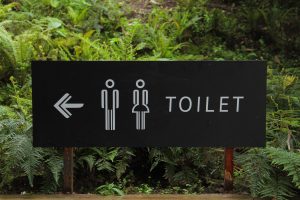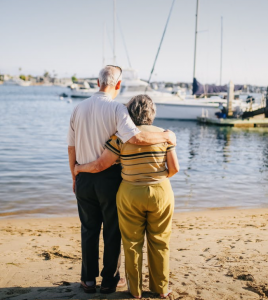How to Manage Incontinence in Older Adults
Fast facts about senior incontinence:
- 1 in 3 older women and 1 in 12 older men have lower urinary tract symptoms that can include incontinence
- 6-10% of nursing home admissions are due to urinary incontinence
- Only 22% of men with urinary incontinence seek help for the problem, as compared to 45% of women
- There are 4 main types of urinary incontinence: stress, urge, overflow, and mixed
With aging comes a change in the muscle fibers of the bladder, as well as a decline in neurological response that accompanies normal urinary function. Incontinence is not normal and should not be ignored. Don’t wait to alert your senior’s doctor if incontinence becomes an issue for them.
Incontinence can take over senior’s life, forcing them to stay home and miss family gatherings and social outings, rearrange their schedules and routines so they are always near a bathroom, and eventually rely on the help of a caregiver to ensure their daily needs are met.
Before talking to a doctor, it’s important to understand the different types of urinary incontinence and where they could stem from
- Stress: if you lose urine when doing certain activities
- Overflow: you lose urine all the time in a dribble
- Urge: feeling an urgent need to get to the bathroom that you sometimes can’t meet
Seniors can experience a combination of these types known as Mixed incontinence.
Some of the causes of incontinence in seniors
- Medications
- Infection
- Depression
- Dementia
- Arthritis and Parkinson’s
Managing incontinence
Continence products like pads or diapers can be the easiest and fastest way to avoid issues, especially while out and about. Creating a bathroom schedule can help remind your senior to use the toilet every few hours. Bedside commodes, catheters, and urinals can make frequent toileting easier, especially overnight.
Lifestyle changes have been shown to reduce the risk of incontinence and help to manage symptoms, like Pelvic floor exercises, medications, surgery, and incontinence products. A conversation with a doctor is necessary to decide which treatment is best for the senior. It’s important to note that certain incontinence medications have been shown to cause health issues when taken with other medication, while surgery may be too invasive for the senior, making it even more important for the senior to have a conversation with a doctor before going forward with any course of treatment. Changing to a Mediterranean diet and exercising have also been shown to help reduce the risks of incontinence.
Come prepared for the appointment. Here are a few things a doctor may want to know about the senior’s issue:
- What activities cause urine to leak?
- Is the leaking constant or intermittent?
- How many times do you use a bathroom in a day?
- How many cups of coffee or bottles of water do you drink in a day and at what times?
- What medications do you take?
Incontinence isn’t a normal part of aging. With the help of a doctor, routine, and adjustments to their day-to-day life, seniors can get back their independence.
Learn how you can provide your senior with 24/7 at-home care with our Adult Foster Care Program.








